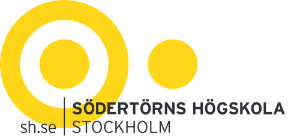Abstract [en]
Some policy work within public administrations these days seems to rely heavily on individual officials’ efforts to make sense of new policy proposals and practices to other groups in their organizations. This is the case especially with local work on cross-cutting issues such as gender and equal treatment policies, children’s rights issues, sustainability and climate policies etc. Typically, work on these matters are meant to be carried out in all parts of the public sector. However, operations in many parts of this sector are guided by managerial models giving little weight to what is usually perceived as “side issues”. Also, new policy proposals in these areas tend to be formed in complex boundary-spanning practices, involving partnerships and collaborative work, not easily compatible with administrative ideals of clear divisions of tasks and mandates. As a result, the officials responsible for work with these issues often seem to have to invest time in explaining both why certain steps ought to be implemented, and by what legitimate processes they have come about.
In this study, such micro-level attempts to gain support for new policy proposals or practices in the administration through efforts to influence the meanings ascribed to them, is seen as a form of steering. The aim of the thesis is to investigate them as such, with the help of governance theory and Karl Weick’s sensemaking perspective. Thereby, the study seeks to provide insights into questions of how this micro-level steering may be analyzed, as well as issues of what they may mean for public administrations’ capacity to make sense of conflicting demands.
Theoretically, the study arrives at an analytical model based on two arguments. The first is that attempts to mobilize other members of an administration in complex practices via means of influencing their understanding of these practices, could be seen a project with two thresholds. One concerns the need of explaining what type of situation or practice members are faced with, and how it fits into the order of the administration. The other concerns the need to visualize its aims in such a way that it appears desirable to groups targeted for mobilization. The second argument is that micro-level attempts to influence meaning-making processes in public administrations could be undertaken in both direct and indirect ways. They may come in the form of words and “talk” directly intended to enact certain images in the organization, but also in the form of efforts to stabilize or reinforce the social dynamics holding such images in place. The study discusses several ways in which attempts to manage this dynamic may be carried out.
Empirically, the analytical model is applied to two case studies focusing on officials working in Swedish municipalities. The task set out for the cases is to investigate the officials’ attempts to gain support for an EU-funded partnership, with the objective of changing recruitment routines in their administrations. The results show that the officials indeed used both direct and indirect means to influence other members understanding of this practice. But also that there appeared to exist a certain dynamic between these means, underlining the need to apply a broad analytical framework when studying this steering, and on a more general note that such steering should be thought of as a product of both communicative and organizing skills.
Ort, förlag, år, upplaga, sidor
Stockholm: Statsvetenskapliga institutionen, Stockholms universitet , 2018. , s. 298
Serie
Stockholm studies in politics, ISSN 0346-6620 ; 177

